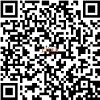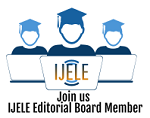(2) Heba Fahmy
(3) Abdallah Elbadry
*corresponding author
AbstractThis research investigated the challenges faced by chemistry Ph.D. candidates writing in English as a second language. Drawing from Second Language Writing, Genre Theory, and Academic Writing Instruction and Support, we investigated the linguistic, cultural, and disciplinary factors that might affect these students' writing development. Nineteen doctoral students participated in the study, which relied on a self-study methodology. Attitudes towards writing, idea generation, revision, criticism, cooperation, and writing process awareness were only some topics covered in a seven-part online survey on academic writing. Language, method, outcomes, style, and substance were found to be the most salient aspects of academic writing as seen by graduate students. There were five major classes of issues with academic writing, including text, errors, competence, support, and dissemination medium. By drawing on the fields of Second Language Writing, Genre Theory, and Academic Writing Instruction and Support, we propose strategies for enhancing students' abilities in academic writing. These strategies range from providing more detailed instructions on the writing process to emphasizing the importance of close communication between faculty advisors and their students. The ramifications of these results for graduate education programs that want to help their students with their academic writing are substantial.
KeywordsAcademic writing; Cairo University; Chemistry Department; Writing Theories
|
DOIhttps://doi.org/10.31763/ijele.v5i2.1248 |
Article metrics10.31763/ijele.v5i2.1248 Abstract views : 993 | PDF views : 353 |
Cite |
Full Text Download Download
|
References
[1] L. Godfrey, C. Treacy, and E. Tarone, “Change in French Second Language Writing in Study Abroad and Domestic Contexts,†Foreign Lang. Ann., vol. 47, no. 1, pp. 48–65, Mar. 2014, doi: 10.1111/flan.12072.
[2] C. B. Swales, J. M., & Feak, “From text to task: Putting research on abstracts to work,†in English for Professional and Academic Purposes, BRILL, 2010, pp. 169–182. doi: 10.1163/9789042029569_012
[3] T. Thonus, “What are the differences? Tutor interactions with first-and second-language writers,†J. Second Lang. Writ., vol. 13, no. 3, pp. 227–242, Sep. 2004, doi: 10.1016/j.jslw.2004.04.012.
[4] W. Grabe and C. Zhang, “Reading-writing relationships in first and second language academic literacy development,†Lang. Teach., vol. 49, no. 3, pp. 339–355, Jul. 2016, doi: 10.1017/S0261444816000082.
[5] L. Shi, “Rewriting and paraphrasing source texts in second language writing,†J. Second Lang. Writ., vol. 21, no. 2, pp. 134–148, Jun. 2012, doi: 10.1016/j.jslw.2012.03.003.
[6] K. Hyland, “Methods and methodologies in second language writing research,†System, vol. 59, pp. 116–125, Jul. 2016, doi: 10.1016/j.system.2016.05.002.
[7] U. Wingate, N. Andon, and A. Cogo, “Embedding academic writing instruction into subject teaching: A case study,†Act. Learn. High. Educ., vol. 12, no. 1, pp. 69–81, Mar. 2011, doi: 10.1177/1469787410387814.
[8] B. Zaid, C. Gunn, J. Fedtke, and M. Ibahrine, “Teaching outside your area of expertise: an opportunity for professional development,†J. Furth. High. Educ., vol. 45, no. 5, pp. 629–640, May 2021, doi: 10.1080/0309877X.2020.1804538.
[9] L. Flower and J. R. Hayes, “Images, plans, and prose: The representation of meaning in writing,†Writ. Commun., vol. 1, no. 1, pp. 120–160, Jan. 1984, doi: 10.1177/0741088384001001006.
[10] J. M. Swales and C. B. Feak, “Task evolution in English for Academic Purposes writing materials: The case of ‘Information Transfer’ to ‘Critical Commentary,’†J. Second Lang. Writ., vol. 61, p. 101017, Sep. 2023, doi: 10.1016/j.jslw.2023.101017.
[11] T. Thonus, “The Disciplinary Identity of Second Language Writing,†J. Second Lang. Writ., vol. 49, p. 100725, Sep. 2020, doi: 10.1016/j.jslw.2020.100725.
[12] S. J. Savignon, “Building Academic Language: Essential Practices for Content Classrooms,†J. Educ. Res., vol. 102, no. 1, pp. 76–80, Sep. 2008, doi: 10.3200/JOER.102.1.76-80.
[13] J. Swales and C. Feak, Academic Writing for Graduate Students, 3rd Edition. Ann Arbor, MI: University of Michigan Press/ELT, 2012. doi: 10.3998/mpub.2173936
[14] A. M. Riazi, “Comparing writing performance in TOEFL-iBT and academic assignments: An exploration of textual features,†Assess. Writ., vol. 28, pp. 15–27, Apr. 2016, doi: 10.1016/j.asw.2016.02.001.
[15] B. Paltridge, “Genre and second-language academic writing,†Lang. Teach., vol. 47, no. 3, pp. 303–318, Jul. 2014, doi: 10.1017/S0261444814000068.
[16] C. J. Thaiss and T. M. Zawacki, Engaged writers and dynamic disciplines: Research on the academic writing life. Boynton/Cook Portsmouth, NH, 2006.
[17] L. Flower and J. R. Hayes, “A Cognitive Process Theory of Writing,†Coll. Compos. Commun., vol. 32, no. 4, p. 365, Dec. 1981, doi: 10.2307/356600.
[18] D. L. Tidwell and S. R. Jónsdóttir, “Methods and Tools of Self-Study,†2020, pp. 377–426. doi: 10.1007/978-981-13-6880-6_12
[19] A. P. Samaras, “Explorations in using artsâ€based selfâ€study methods,†Int. J. Qual. Stud. Educ., vol. 23, no. 6, pp. 719–736, Nov. 2010, doi: 10.1080/09518390903426212.
[20] A. Feldman, P. Paugh, and G. Mills, “Self-Study Through Action Research,†in International Handbook of Self-Study of Teaching and Teacher Education Practices, Dordrecht: Springer Netherlands, 2004, pp. 943–977. doi: 10.1007/978-1-4020-6545-3_24
Refbacks
- There are currently no refbacks.
Copyright (c) 2023 Hamed A. Ead, Heba Fahmy, Abdallah Elbadry

This work is licensed under a Creative Commons Attribution-ShareAlike 4.0 International License.

International Journal of Education and Learning
ISSNÂ 2684-9240
Published by Association for Scientific Computing Electronics and Engineering (ASCEE)
W : http://pubs2.ascee.org/index.php/ijele
E : zalik@ascee.org

This work is licensed under a Creative Commons Attribution-ShareAlike 4.0 International License.





















